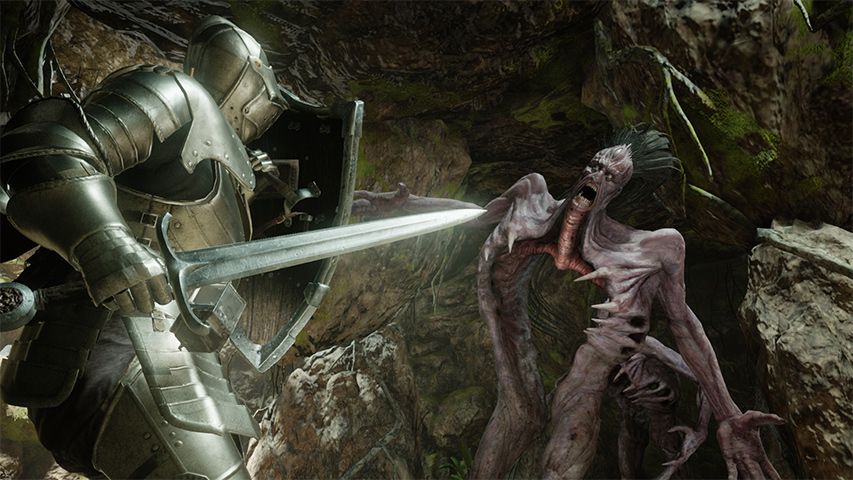Yesterday Capcom's jolly producer Yoshinori Ono mentioned that when the publisher will show Deep Down again, it will be "completely different." He also added that the game's concept has become much larger than what was first announced.
While that's a pretty vague statement, it sparked quite a lot of interest, and I've seen many hoping for it to mean that Capcom might drop the free-to-play business model.
Personally, I'm far from a fan of free-to-play games. I definitely prefer to pay my dues up-front and be done with it. Even with MMORPGs, I very much favor pay-to-play ones, due to the higher probability of a constant stream of high quality content. It's not surprising that Final Fantasy XIV: A Realm Reborn is by far my current favorite.
Unfortunately, though, the chances for Capcom to drop the free-to-play model are very, very slim. In the latest annual report Consumer Games Development Division 2 Senior Manager Teruki Miyashita was quite clear in explaining what the plan entails.
Crammed full of new game elements, we want users to enjoy and play “deep down” for a long time, first as a free to play (F2P) game, then as a premium game. To achieve this, we must continue to satisfy users. In other words, the challenge really starts after the game is released, so we must be ready with planned surprises and updates.
F2P “deep down” for PS4 is the litmus test for Capcom’s new business model. We are making an effort with respect to “deep down” so that users will want to play this game, and after release, we will continue to make an effort through addition content aimed at keeping users interested in the game, and ultimately, creating a hit title.
Those statements are from December, when Deep Down was already deep in its constant delay cycle, so a radical change of plans over just a couple months is very unlikely. The report is intended for investors, so we can expect it to include a very precise outline of Capcom's plans. No change was mentioned during the latest fiscal presentation, and that's also a very relevant hint.
Capcom has always been very vocal on several outlets about the fact that they intend to pursue the free to play business model as much as possible in order to increase revenue, and the recent announcement of Dragon's Dogma Online is a clear indication that such an intention has not changed.
The wording of Miyashita-san's statement does leave a bit of hope, though. The concept of encouraging users to pass from free to play costumers to premium, might indicate some sort of hybrid model that could allow us to pay a premium rate for all or a large part of the content, like many MMORPGs do nowadays. Whether that could be a flat initial purchase price or a recurring fee is unknown, and this is just my personal speculation anyway.
On the other hand, yesterday's words by Ono-san seem to suggest that the publisher intends to make the game bigger and better. Capcom pitched the new Online Games studio in Tokyo to work on the game, increasing the resources involved, and that probably means more content and higher quality.
When Ono-san talks about a "completely different form" he possibly also means improved graphics. Producer Kazunori Sugiura did mention that the game is part of the company's plans for the next fifteen years, and that they want to achieve visuals able to keep up for a long time span.
A further improvement in graphics should be wholly unsurprising, despite the fact that what we've seen so far is already spectacular. Games' visuals progress in quality by leaps and bounds during the first years of a generation as engines get updated and new technologies are researched. Capcom's Panta Rhey should be no exception.
What we can expect to see in the future is probably a bigger, better and more beautiful Deep Down. Unfortunately it's still quite unlikely that it'll be a Deep Down you'll be able to buy in a shop as a boxed game. The free to play business model is very likely to stay, possibly side by side with a premium offer. We can only hope that it'll be well implemented, with a gameplay experience based on quality and not (or at least not entirely) on monetization.

